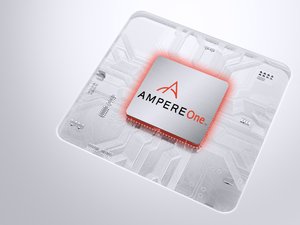
In 2021 Brady Benware left a corporate tech job and started a company with a product designed to help people pay off debt.
The app, called Debt Payoff Planner, has had more than a million downloads. It’s a passion project and a successful business, he said.
However, at the end of last year, he saw that everything was going to change.
The culprit: the wave of artificial intelligence innovation being released to the public using tools powered by large language models like ChatGPT.
“The things we were investing in, the next set of features that we were building for our users and trying to create that value (for them) and all of a sudden we started (to ask) what is this going to do,” he said. “Is this really going to fundamentally change everything so that we need to rethink the whole strategy and how we deliver value to people?”
The result is a new consultancy from Benware and business partner Chris Schuermyer called GPT Now. They hope to help other businesses figure out how to incorporate this technology into their own products and processes. It’s based on what they learned of the capabilities and limitations of current tools by incorporating them into Debt Payoff Planner.
“We’re very technically savvy but also have this business background,” he said of their work to get a handle on the tech. “We said we need to figure this out. What is the hype, what is the reality and we need to start to incorporate this into our business somehow so we can go through that cycle of learning and truly understand what this has the potential to do.”
Benware has also teamed with former Alchemy Code Lab CEO Marty Nelson to start a meetup group in town focused on bringing developers together to learn and create applications using this technology.
“We have amazing people and resources in Portland and the AI disruption represents a great opportunity to reinvigorate tech entrepreneurship in Portland. And a great opportunity to bring Portland-based values to the tech entrepreneurship landscape,” he said. “There's no reason Portland shouldn't be one of the centers of excellence in this area.”
Back when mobile technology was taking off, Portland had a generation of developers that embraced the technology and helped fuel the growth of the startup scene.
Where to begin with GPT technology
With Debt Playoff Planner, Benware and Schuermyer looked at how to automate certain back office tasks. They are not building foundational tech but are instead looking at deployment of what is available on the market.
Using the underlying large language model of ChatGPT through API’s made available from OpenAI, the team has automated part of the customer support function of Debt Payoff Planner and created the company’s online FAQs.
The company took about 1,000 customer emails exchanges and used that as the knowledge base for the AI. That data was sanitized to ensure customer privacy, Benware said. Getting the data ready took “old-school development work,” he added and is an important element in this whole process.
Now, customers emailing questions to Debt Payoff Planner are likely to get an AI generated response. But, Benware noted the response isn’t immediate and a person has a final approval before the message is sent, allowing for corrections before it's sent.
“(The AI tools) are not to the point where it’s 100% reliable. So what it’s doing is greatly accelerating our response time because we can answer those emails with less effort,” he said.
Whoever is on customer support gets three proposed responses to pick from and make edits. The results from that are fed back into the system to keep refining the work, Benware said.
Though the technology might not be at 100% reliability today, Benware noted it is quickly becoming better. For example the difference between GPT version 3.5 and GPT 4 is orders of magnitude, he said.
“So, we’re overestimating what it can do today and maybe underestimating what it will do tomorrow,” he said.
With GPT Now, Benware and Schuermyer are early in their effort to help others use this technology. The highest level of interest has come from other entrepreneurs who have seen this technology and want to building something on top of the available tools, said Benware.
One thing that has surprised Benware is that despite all the hype in tech circles, many people he's met haven’t heard of ChatGPT.
“I think it will be a while before other businesses, maybe more traditional brick and mortar businesses understands the potential it can have in their business and it will take a while also for it to matter for them. Which is once the user or the customer preference changes to I don’t want to visit your website, I want to chat with your website.”






